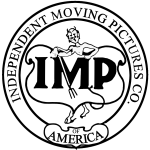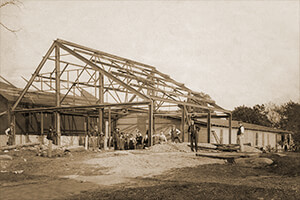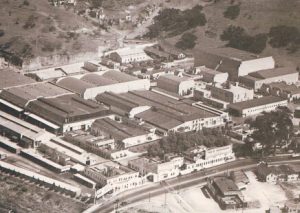Carl Laemmle

Carl Laemmle
1867 – 1939
"Many people are mourned after their death but not loved while they are alive, particularly those who have power which makes them so susceptible to hatred. But here was a man who was loved by all. He was kind and sweet. He saw all who needed him and never with a display of arrogance. He was always the same, sweet and simple. He never forgot he was a poor boy."
Rabbi Edgar F. Magnin from his Eulogy.
(Pronounced LEM'-lee)
On April 30, 1912
Initially IMP was a member company of Edison's Motion Pictures Patents Company (commonly known as "The Trust") and Laemmle paid a fee to Edison for the "privilege" of making movies, as he saw it. Edison seemed to own the patent on every possible device a movie maker might want to use. That didn't sit right with Laemmle. He bristled. He could have continued to pay Edison's fee, or he could have tried to hide from Edison's Trust Detectives, as many independent movie makers did.
It was clear to the people around him that Carl Laemmle was cut from a different cloth. He was neither going to cave to Edison nor hide. He was going to take Edison head on. His solution was to organization independent movie makers into a business large enough that he could not only fight Edison, but compete against him. He wanted to bust the trust, and bust the trust he did (read more).
So, on April 30, 1912 Universal Film Manufacturing Company, or "The Universal" as it was known in Fort Lee, was born as the result of a merger between six fiercely independent and profitable companies. These included Carl Laemlle’s IMP (Independent Motion Pictures), Mark Dintenfass' Champion, David Horsley’s Nestor Pictures, Adam Kessel and Charles O. Baumann’s New York Motion Picture Company, Pat Powers’ Powers Motion Picture Company, and William Swanson of Rex Motion Pictures.
After a power struggle in which Charles Baumann was ousted as company president, the NYMPC was returned to Kessel and Baumann, and Laemmle was elevated to the president's chair and he never looked back.
The new company initially moved into Dintenfass' Champion Studio in Fort Lee and and absorbed several other small studios, including Hollywood's very first studio, Nestor Comedies owned by partner David Horsley. Laemmle proceeded to build two new enormous studios, one in Fort Lee and the other in California's San Fernando Valley at what came to be know as Universal City. Within a year, however, he consolidated all the company's activities at the new, large California plant, renting out the Fort Lee studios. He moved his family to California, where Universal flourished in the burgeoning studio environment, and he continue to absorb smaller companies.
Laemmle turned out to be a benevolent dictator. He hired his friends and family, and was a generous and friendly studio boss. Unlike many of his contemporaries, many of whom were hated by the people around them, Uncle Carl was beloved. He always had a smile.
Carl Laemmle was content producing "B" product from the world's largest studio, but he occasionally he would produce "A" features. He produced Lon Chaney's biggest films including "The Hunchback of Notre Dame," and "Phantom of the Opera" in the 1920s. He produced "Frankenstein," and "Dracula" in the 1930s. He produced "The Invisible Man" and "All Quiet on the Western Front" which won Universal's first Best Picture Oscar. In 1936 he produced the original "Showboat," a big budget musical starring Paul Robeson. Unofficially Universal specialized in monster and horror movies.
Laemmle was credited with producing 898 films, though most likely they were in name only as he had a business to run. He left most of the production management to Carl, Jr.
In 1936 Carl Laemmle was ousted from Universal and replaced with corporate management. The company had been in a financial slump due to the depression. Many of the Hollywood studios suffered as well and had to make adjustments in the way they did business. Laemmle, as a concession to the financiers he owed money to, gave up control of the company he had started 34 years earlier.
Three years later, on September 24, 1939, Carl Laemmle died of a heart attack at age 72.
The legacy he created and left looms larger than life.
Related Pages:
- The Studios of Universal
- Universal Hollywood
- Universal Fort Lee
- IMP
- The Champion
- Century Studio Sunset
- Nestor Studio
- Bison 101
- Rothacker
- Moguls page






